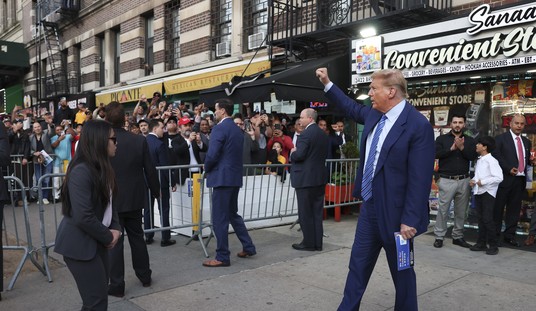Nigel Farage, leader of the UK Independence Party, or UKIP, has rarely been photographed without a pint of beer in his hand over the last few years as he’s caroused his way around Britain, taunting its political establishment. And he had good reason to raise a glass over the weekend as UKIP won elections to the European Parliament, becoming the first party other than Labour or the Conservatives to win a UK national election for more than 100 years.
Long dismissed by mainstream politicians and commentators as oddballs and extremists – Conservative Prime Minister David Cameron famously dismissed them as “fruitcakes, loonies and closet racists” – Farage’s insurgents have become increasingly hard to ignore. UKIP wants an end to mass immigration to the UK, and Britain’s withdrawal from the European Union – the two issues are inextricably linked, as EU rules mean Britain is unable to control immigration from other member countries.
The result didn’t come as a big surprise – several polls had put UKIP narrowly ahead of Labour in recent weeks, and in the event UKIP took 27.5 percent of the vote, with Labour second at 25.4 percent and the Tories third at 24 percent. But it’s the most significant development in British politics in decades; Farage hailed the result as “an earthquake,” and predicted that his party would win seats in next year’s general election.
The Conservatives did better than expected, suggesting that some Tory defectors to UKIP are being lured back by the steadily recovering UK economy. But another strong showing by UKIP in 2015 would likely condemn Cameron and his party to defeat at the hands of Labour, and some Tory MPs have renewed calls for an electoral pact with UKIP to avert disaster. Farage, meanwhile, insists the Tories can’t win the election if Cameron remains in charge.
Cameron has been eager to persuade disaffected Tories that he feels their pain. Last week he said he shared the frustration of voters over his party’s inability to control immigration, and arriving in Brussels this week for a meeting with other European leaders to discuss the election results, which saw gains for populist parties from both the left and right across the continent, he said the EU had become “too big, too bossy, too interfering”.
The results across Europe will strengthen Cameron’s hand as he seeks to make the case for EU reform, and for the return of key powers to national governments, ahead of the in/out referendum on EU membership that he’s pledged to hold if the Conservatives secure an overall majority in 2015. Labour, and the Liberal Democrats – who are the Tories’ partners in Britain’s coalition government – have refused to hold a referendum on Europe.
While trying not to appear dismissive of voters’ concerns, the established parties are clinging to the hope that UKIP remains a protest party, and that many of those who voted for Farage will desert him when the “real” election comes along. While UKIP dismisses those claims, there’s undeniably a protest element to UKIP’s support – when general election voting intentions are polled, UKIP’s support falls to around half the level it achieved in the Euro elections. However, even that would be enough for UKIP to have a major influence on who forms the next government.
Until recently it was assumed the Conservatives had the most to lose from UKIP’s rise. UKIP would, the theory went, split the vote on the right in key “marginal” constituencies, handing victory to Labour, which is only narrowly ahead of the Tories in the polls, by default. At the same time, Farage would sign his party’s death warrant by denying victory to the only party capable of delivering on the issue that is UKIP’s raison d’être – British withdrawal from the European Union (the Tories themselves are divided between those who, like Farage, want out, and those, including Cameron, who favor continued British membership of a reformed EU).
However, the biggest takeaway from the European elections, and from local council elections held at the same time, is that UKIP is starting to attract former Labour voters, particularly in Labour’s traditional heartlands in the north of England, as well as inflicting damage on the Conservatives. Labour’s showing in the Euro elections was disappointing, much as it tried to spin otherwise. The main opposition party would normally be expected to win a national election held in between parliamentary elections comfortably, but not only did Labour lose to UKIP, it finished only narrowly ahead of the Conservatives.
The British public hasn’t forgotten that Labour was in charge when the financial crisis hit in 2008, and they’ve failed to warm to Ed Miliband, who replaced Gordon Brown as party leader; despite his party trailing Labour in the polls, Cameron remains the more popular party leader. Miliband has had a hard time reconciling a succession of populist, anti-austerity initiatives with his assurances that a Labour victory in 2015 wouldn’t mean a return to the bad old days of high taxes and reckless public spending – assurances that were somewhat undermined when he pledged to “bring back socialism” in an off-the-cuff remark to supporters.
The Liberal Democrats, meanwhile, who broadly speaking are fiscally centrist and socially “progressive,” are in virtual meltdown after a disastrous showing in the Euro elections, with activists demanding the removal of leader Nick Clegg, who contributed in no small part to UKIP’s success when he was pummeled by Farage in two televised debates on Europe.
So it’s possible that a combination of some kind of Tory/UKIP pact (which would likely be informal and at the local level, given Cameron’s and Farage’s mutual loathing), continued economic recovery and the collapse of the Liberal Democrat vote could put Cameron back in 10 Downing Street in 2015 with an overall majority. But whatever happens, in the wake of the UKIP revolution British politics is unlikely to be the same again.
The party’s growing popularity, and ability to take votes from both mainstream parties, suggests that the divisions in UK society are increasingly between the haves and have nots – between the out-of-touch, condescending elites and the masses – rather than between left and right. Farage has tapped into widespread frustration with both major parties, and with the political establishment in general, over not just immigration, but everything from Britain’s inability to deport foreign criminals because of European law to a shortage of affordable housing, and rising fuel bills caused by pie-in-the-sky green energy policies.
The divide is geographic as well as cultural and economic. The elites are entrenched in and around London, and it’s no coincidence that the capital was the one area where UKIP didn’t perform well, outside of poor, white working class ghettos. London increasingly resembles an independent city state – a hybrid of Washington and New York, with a domestic political and media elite, and a multinational financial and business elite, who are disconnected from reality and serviced by the labor of low-wage immigrants.
UKIP remains a long way from winning more than a handful of seats at Westminster. But Britain’s permanent political class, who have had things their own way for far too long, have been warned. They’ll have to start listening to the people, and addressing the issues on which UKIP has seized the initiative – otherwise the next earthquake could bury them.








Join the conversation as a VIP Member